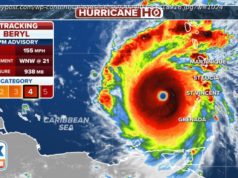The fallout from Boeing grounding some of its aircraft amid safety concerns will hit both passengers and airlines. Be prepared for delays and higher fares.
Getty
A group of Southwest Airlines Boeing 737 MAX 8 aircraft sit on the tarmac at Phoenix Sky Harbor International Airport on March 13,2019 in Phoenix, Arizona.
With investigations under way into two crashes of Boeing’s 737 MAX 8 aircraft, the US manufacturer has caved to pressure and grounded the entire global fleet totalling 371 planes. That includes both model 8 and 9 versions of the aircraft.
The company issued a statement saying this occurred:
… out of an abundance of caution and in order to reassure the flying public of the aircraft’s safety.
Read more:Flights suspended and vital questions remain after second Boeing 737 MAX 8 crash within five months
But the impact on passengers and air travel could last for months as airlines try to reschedule flights and seek other aircraft to meet demands. While things are still evolving, what should you anticipate as a traveller?
US President Donald Trump’s order on Wednesday prompted the Federal Aviation Authority to ground all 737 MAX aircraft flying in and out of the US.
While it is legitimate for a government to issue regulatory orders to intervene in an airline’s operation due to safety or security concerns, it is unprecedented that such a large number of countries are taking action.
At least 45 International Civil Aviation Organisation member states had already either ordered their airlines to ground 737 MAX aircraft, or suspended entry of such planes into enter their airspaces.
Countries affected include China, Indonesia, Germany, UK, France, the Netherlands, Singapore, Australia, New Zealand, Canada and now the US.
While investigations into the two crashes could last for months or even years before any conclusion is drawn, the length of suspension is also unknown at this stage.
Yet holiday seasons such as Easter and school vacations are approaching, and many of us will no doubt be looking to fly away for a break.
Airlines face disruption almost every day: airline operation is a complex system. Disruption can be caused by unforeseeable weather conditions, unexpected technical or mechanical issues of an aircraft, or associated safety hazards or security concerns.
Airlines therefore have strategies in place to manage or at least mitigate the effect of the disruption and reduce any potential delays. This could include but is not limited to:
changing or swapping an aircraft type
combining two or three flights into one operation
arranging alternative flights for travellers
moving travellers to other airlines if their tickets have been issued.






